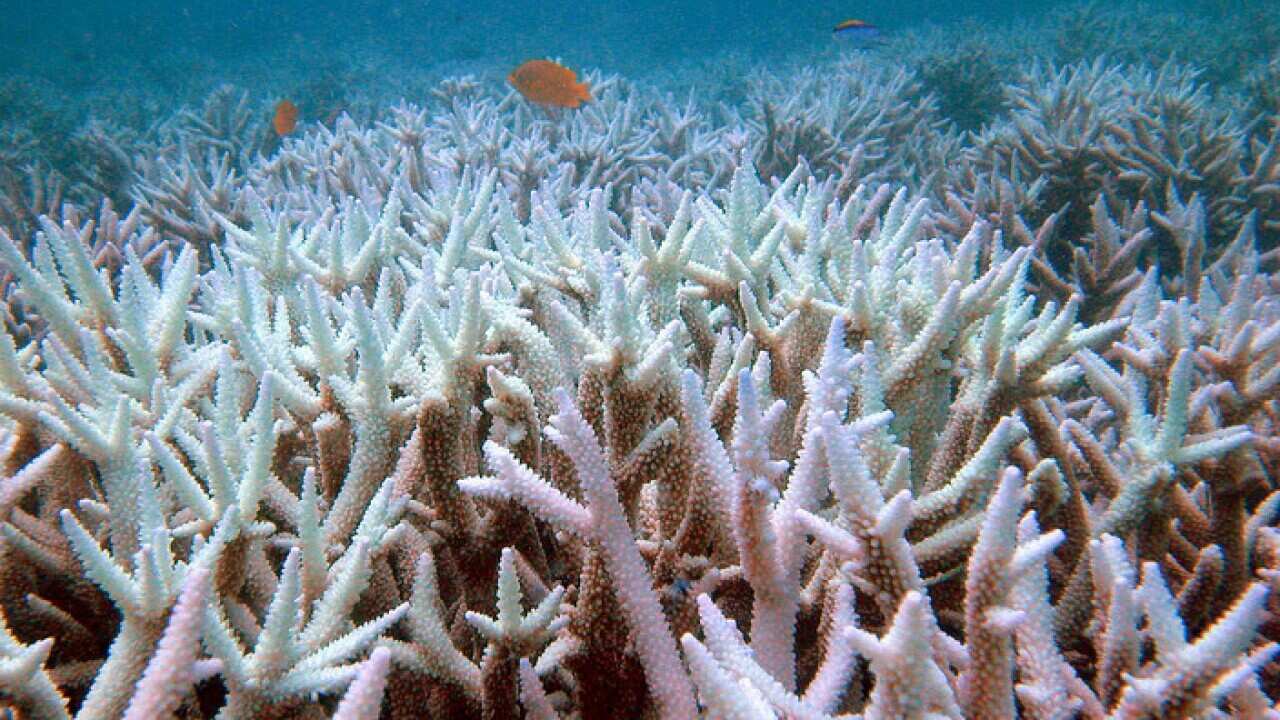As the largest international gathering of coral reef experts comes to a close, scientists have sent a letter to Australian officials calling for action to save the world's reefs, which are being rapidly damaged.
The letter was sent on Saturday to Australian Prime Minister Malcolm Turnbull imploring his government to do more to conserve the nation's reefs and curb fossil fuel consumption.
The letter, signed by past and present presidents of the International Society for Reef Studies on behalf of the 2000 attendees of the International Coral Reef Symposium that was held in Honolulu this week, urged the Australian government to prioritise its Great Barrier Reef.
"This year has seen the worst mass bleaching in history, threatening many coral reefs around the world including the whole of the northern Great Barrier Reef, the biggest and best-known of all reefs," the letter said. "The damage to this Australian icon has already been devastating. In addition to damage from greenhouse gases, port dredging and shipping of fossil fuels across the Great Barrier Reef contravene Australia's responsibilities for stewardship of the Reef under the World Heritage Convention."
Scientists are not known for their political activism, said James Cook University professor Terry Hughes, but they felt this crisis warranted such action.
"We are not ready to write the obituary for coral reefs," said Hughes, who is also the president of the ARC Centre of Excellence for Coral Reef Studies in Australia.
A call to action from three Pacific island nations whose reefs are in the crosshairs of the largest and longest-lasting coral bleaching event in recorded history was presented on Friday at the conclusion of the symposium in Honolulu.
The heads of state from Palau, Micronesia and the Marshall Islands attended the conference and will provide a plan to help save their ailing coral reefs.
The call to action, signed by the three presidents, asked for better collaboration between the scientific community and local governments, saying there needs to be more funding and a strengthened commitment to protecting the reefs.
In response to the letter, the scientific community at the conference said they would work with national leaders of Micronesia, the Palau, the Marshall Islands, and the world "to curb the continued loss of coral reefs."
Bleaching is a process where corals, stressed by hot ocean waters and other environmental changes, lose their colour as the symbiotic algae that lives within them is released. Severe or concurrent years of bleaching can kill coral reefs, as has been documented over the past two years in oceans around the world. Scientists expect a third year of bleaching to last through the end of 2016.
In the northern third of the Great Barrier Reef, close to half of the corals have died in the past three months, said Hughes, who focuses his research there.
But the panel of scientists emphasised the progress they have made over the past 30 years and stressed that good research and management programs for coral reefs are available. The scientists said they just need the proper funding and political will to enact them.

